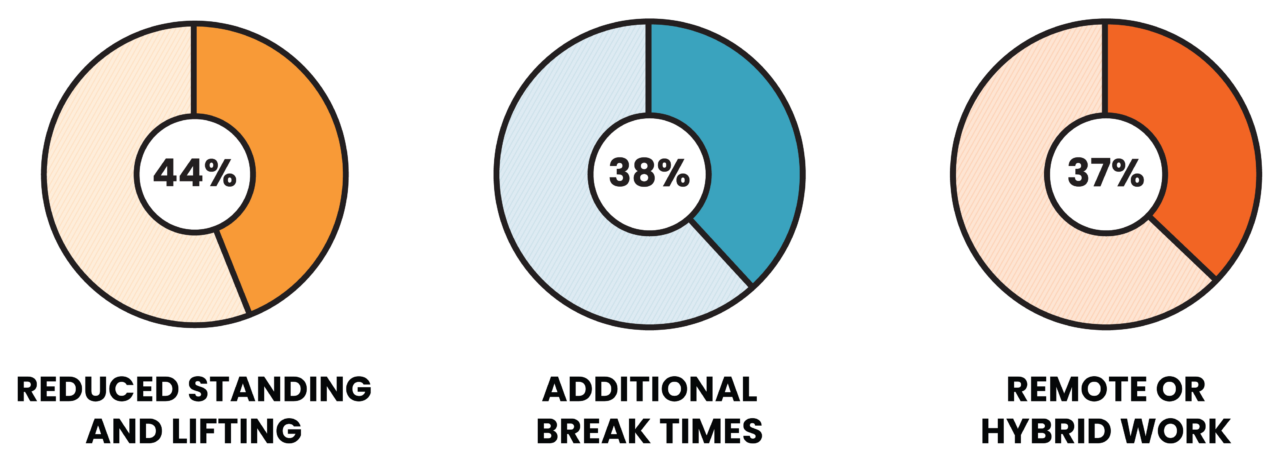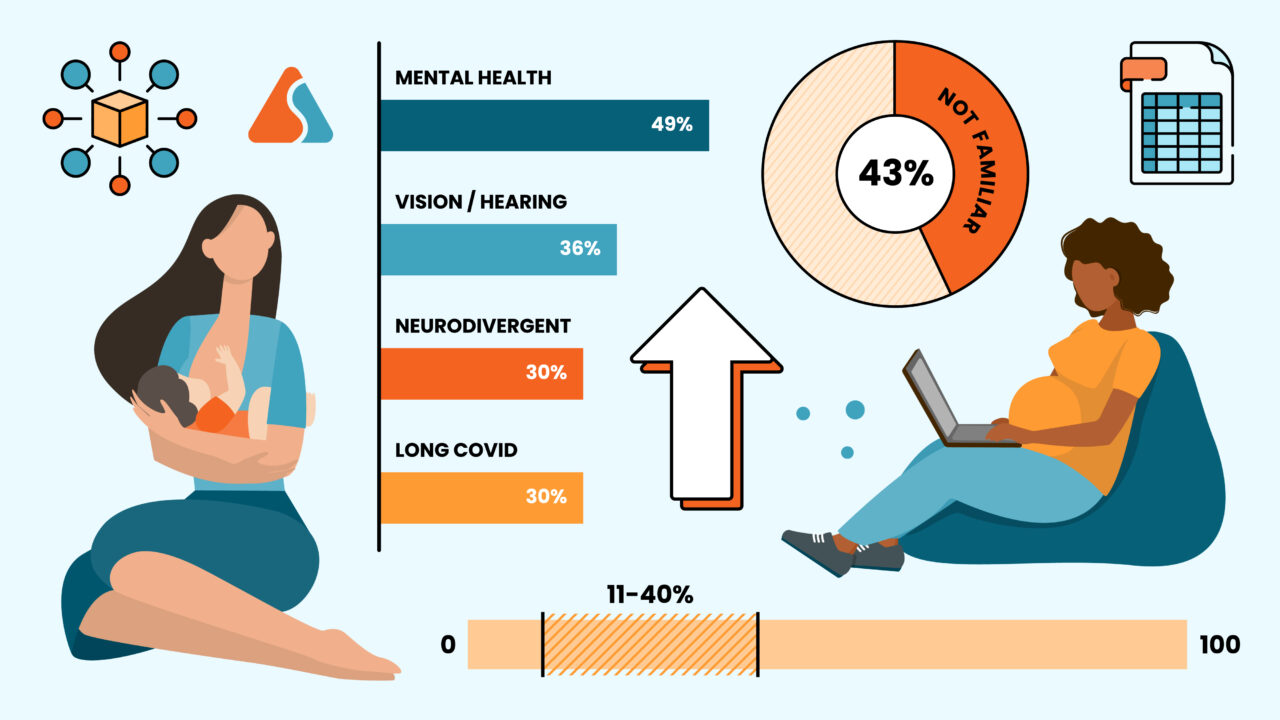We surveyed 600 HR leaders and decision makers at companies with more than 5,000 employees to learn about their organization’s overall readiness for the Pregnant Worker’s Fairness Act (PWFA), which goes into effect June 27, 2023. We also asked respondents about their current workplace accommodations programs and how they anticipate the new law will affect their company.
Note: This blog is an excerpt from our full report, which includes the full results and more information about how HR can prepare for the PWFA. Download the report today.
Nearly half of employers don’t know all the details of PWFA and are not fully prepared.
43% of employers surveyed said they were either not familiar or only somewhat familiar with PWFA, and 50% said their HR department was either not at all prepared or only just starting to prepare.


Most employers anticipate an increase in requests for workplace accommodations by pregnant employees.
72% of HR decision-makers we surveyed anticipated an increase in accommodations requests related to pregnancy. Nearly half (49%) expect to receive 11-40% additional requests, and another third (33%) anticipate requests rising by 41% or more.

Half of survey respondents said that each year, 11-40% of their workforce is on maternity leave. More than a quarter (26%) report that 21% or more of their employees takes maternity leave. These numbers show that for most employers, at least 11% of their workforce could be additionally eligible for accommodations under the ADA.

Most large employers are prepared to accommodate pregnant workers with job modifications and flexible hours, but far fewer are ready to offer a leave as an accommodation.
Nearly half of respondents (44% and 43%) said they were prepared to reduce standing and lifting requirements for pregnant workers, as well as offer flexibility in work hours or start times. A larger percentage of employers were also willing to offer additional break times (38%) and options for remote or hybrid work (37%).

However, many were not prepared to offer intermittent leave (25%) or a leave of absence (only 17%), even though they could be considered reasonable for some pregnancy-related conditions.
Overall, managing accommodations programs remains a challenge for many large employers, and half of employers surveyed had only a few formal processes in place – or none at all.
Half of the HR professionals we surveyed either had no formal processes in place, or had just a few processes but relied primarily on spreadsheets, email reminders, and disparate apps.
Of the other half of respondents, nearly all (40%) had centralized their accommodations management with software, while only 11% used an outsourced provider.

Nearly half (49%) of respondents said they were concerned about how well their company could provide accommodations for mental health conditions like depression and anxiety.
HR professionals were also concerned about accommodating workers with vision or hearing impairment (36%), neurodivergent conditions such as ADHD or autism spectrum disorder (30%), and long COVID (30%).

For more details, you can read the Pregnant Workers Fairness Act Employer Readiness Report, which includes the full results and more information about how HR can prepare for the PWFA. To learn more about why it is important accommodate many types of disabilities, and strategies for finding the right accommodations, visit: absencesoft.com/resource-tag/accommodations

